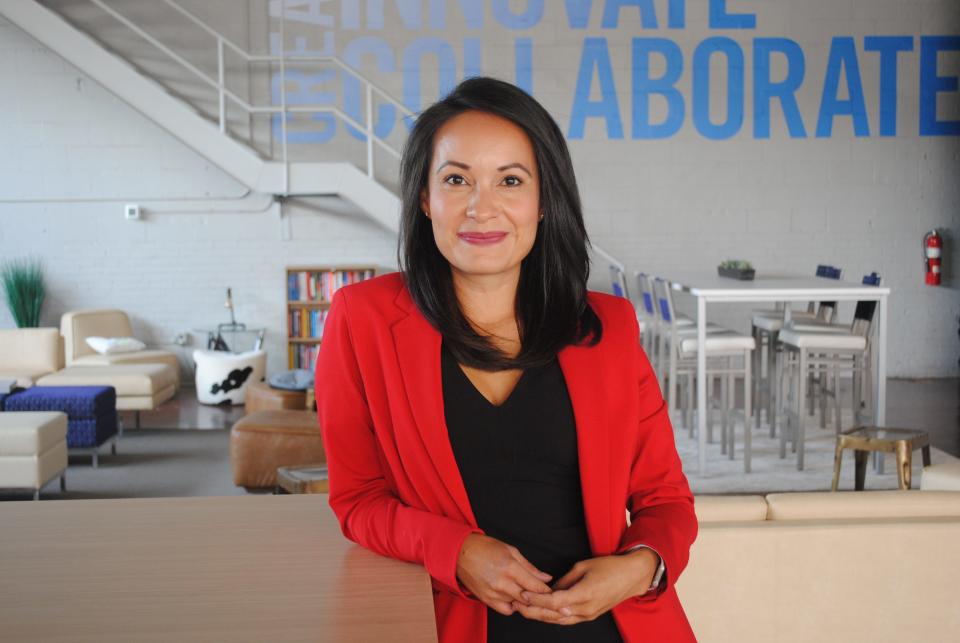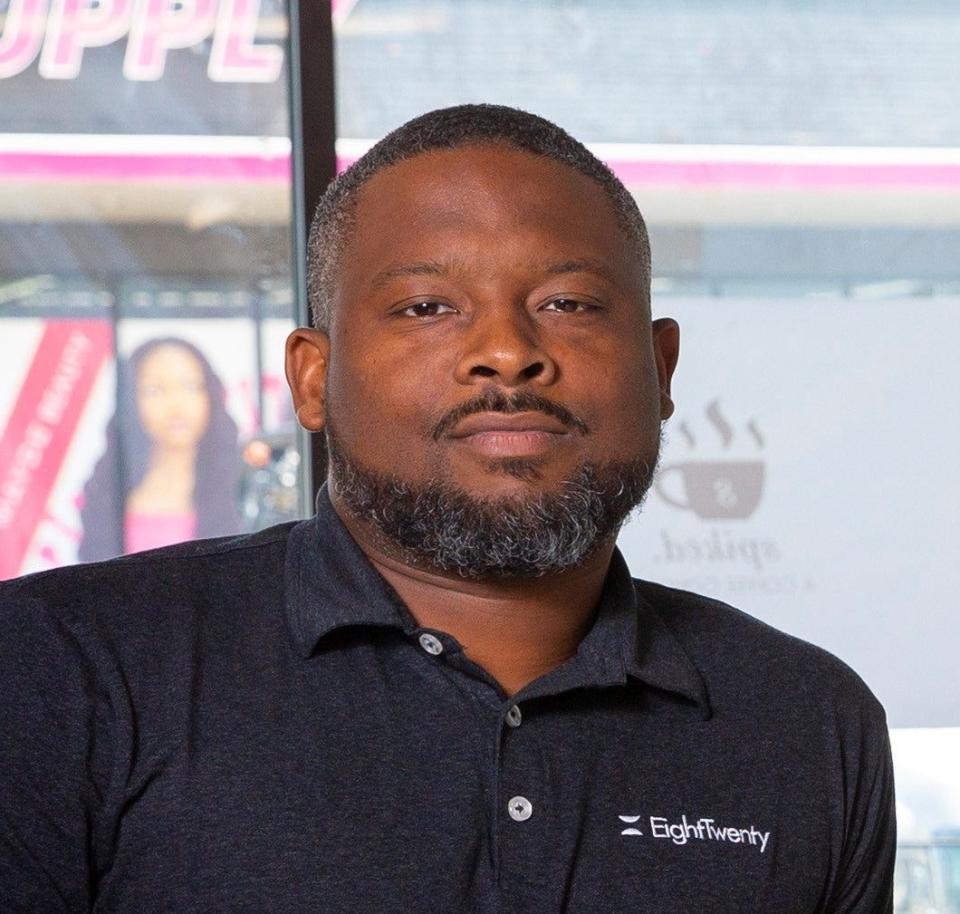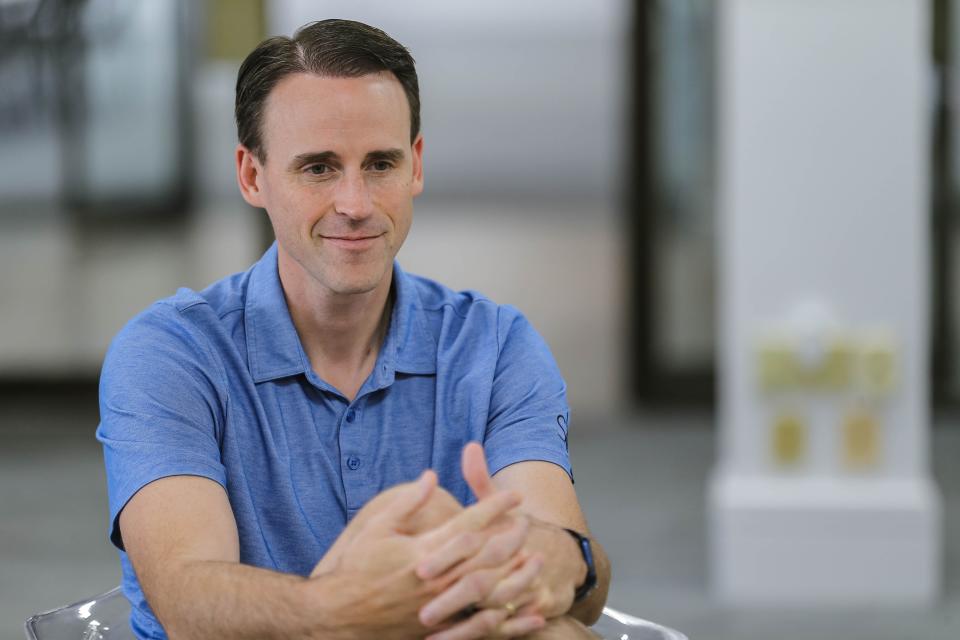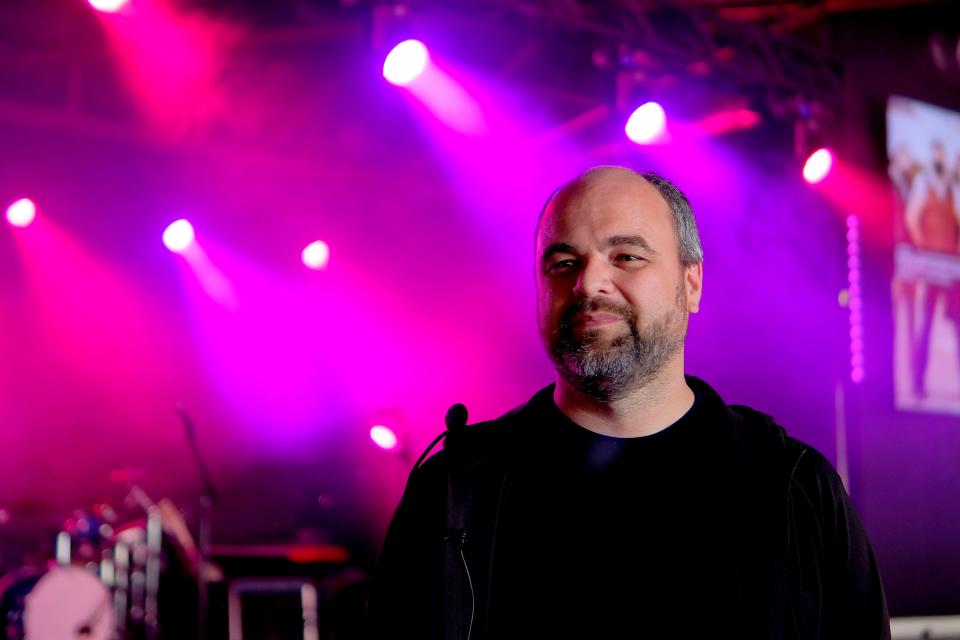Up-and-coming civic influencers donate time, resources to shape a new Oklahoma City
Millennials and young Gen Xers are finding ways to use their business backgrounds and expertise to shape Oklahoma City as a community with diverse educational, cultural and work opportunities.
Long guided by baby boomers, the city is increasingly being shaped by these young entrepreneurs. A sampling shows up-and-coming civic influencers come from a variety of professions ranging from construction to entertainment, manufacturing and finance.
The Oklahoman asked 11 civic influencers to share their vision for their city.
Monique Short and Erica Emery
Monique Short, 43, and her sister Erica Emery, 41, started Monarch Properties in 2016 building homes east of downtown. They have since expanded their operation to include commercial construction with notable projects including the Market at EastPoint on NE 23.
Short is a board member with City Care, the Innovation District Education Committee, Inside Track REsources, and also serves on the MAPS 4 Innovation District Committee and Bike Walk OKC Committee.
Emery is on the management committee with the Urban Land Institute, a program advisor with PlaceKeepers and a board member with NEOKC Renaissance and East End.
“As we continue to grow as a city, my hope is that businesses continue to recruit and create an inclusive and diverse workforce,” Short said. “It's important that OKC takes a greater interest in education. Our education system is crucial to help prepare current residents for employment opportunities that are available now and coming in the near future.
“I also believe that city leaders need to be intentional about making sure that efforts are in place for all communities to benefit from the growth and wealth creation the city is currently experiencing, and what's coming in the near future. “
Emery said she wants to see an increased emphasis on density.
“I think people are embracing the idea of smaller spaces and urban living, as well as wanting walkability,” Emery said. “We talk a lot about the need for affordability in housing and availability of amenities and services.
“A lot of times, density has a negative connotation for people. But increased density boosts productivity, innovation, improves access to goods and services, reduces commute times, encourages smart and energy-efficient construction and transportation, and allows broader sharing of already scarce amenities in the urban core. As developers create new spaces and find cool ways to reuse existing buildings, I hope we'll see more mixed-use projects that bring both density and small businesses to various parts of our city.”
Erika Lucas

Erika Lucas, 40, co-founded StitchCrew five years ago to connect traditionally overlooked business owners with capital, resources and networks so they can build and scale companies in Oklahoma. To date, StitchCrew reports having supported over 100 entrepreneurs — efforts that led to raising more than $30 million in investment and the creation of more than 300 jobs. Lucas founded VEST in 2020, an organization investing in women-led companies and connecting professional women across industries and career levels.
Since launching VEST, more than 100 members were added with chapters in Oklahoma City; Tulsa; Houston; Washington, D.C.; Connecticut; and Arkansas. Lucas currently serves on the board of the Oklahoma Policy Institute, Oklahoma City County Health Department and the Diversion Hub.
Lucas said her vision is a more equitable and distributed economy in Oklahoma City and a coordinated effort from business and civic leaders to forecast and collaborate to meet the demands and opportunities the future of work represents. She said she also wants to see a collaborative effort to increase capital access, and remove structural barriers and extreme policies keeping women, Latinos, Black and other marginalized communities from reaching their full potential.
Ashley Terry
Ashley Terry, 37, is playing a lead role guiding the creation of a new model for building neighborhoods in Oklahoma City as vice president of development at the Wheeler District. The development along the Oklahoma River is adding dozens of homes, businesses, parks and a school that serves both Wheeler and the working-class adjoining neighborhood to the west. Wheeler is not gated, invites in the greater community with its Ferris wheel and adjoining park, and frequently hosts festivals and bike races.
More:View the Wheeler District's history in photos, see what's next.
That experience and expertise is given back through Terry’s work as chair of Urban Land Institute of Oklahoma and on the boards of the Neighborhood Alliance of Central Oklahoma, Calle dos Cinco in Historic Capitol Hill, the Oklahoma City Foundation for Architecture and the Independent Retail Community Initiatives.
“My vision for Oklahoma City is to be a thriving and diverse city that values providing an accessible range of housing, transportation and sustainable resources for every member of our community,” Terry said. “I hope in the future, Oklahoma City continues to come together to build a thoughtful and vibrant city that not only supports our residents but encourages them to further invest in their community.”
Jonathan Dodson
Jonathan Dodson, 42, was a banker when he grew interested in advocating for the urban core and making city streets safer for pedestrians. As a partner in the Pivot Project, Dodson invested in bringing historic properties like the Tower Theater back to life.
He also helped lead efforts to redevelop the long-neglected NE 23 corridor ― the heart of the city’s Black community. The development, which included partner Sandino Thompson, renovated an aging stretch of buildings, some boarded up, into a mix of restaurants, shops, a health clinic, a fitness center and grocery. The next phase of that project, EastPoint, will include a boutique hotel.
“My hope from an infrastructure standpoint is that our streets and sidewalks will be built for 8-year-olds and 80-year-olds,” Dodson said. “My hope for our leadership is that we will leverage power to serve instead of protecting the interests of those in power. My hope for the people that inhabit the city is that geographic location will not dictate outcomes like death rate, morbidity, access to food and health care, or a good education.”
More:Developers explain secret sauce to creating a new Oklahoma City.
Sandino Thompson

Sandino Thompson, 43, is a community builder whose work includes developing EastPoint, a mix of retail, restaurants, health clinic and a hotel along NE 23, and as a partner in EightTwenty, a solar power and renewal energy products company launched in 2020 in east Oklahoma City.
Thompson serves on the city’s MAPS 4 venues subcommittee, the ULI Oklahoma advisory committee, the Biomanufacturing Workforce Training Center advisory committee, the Bricktown Urban Design Committee and volunteers his time with NEOKC Renaissance, Preservation Oklahoma, Lillian Timber Farms, Afrikanation Artist Organization, and OSU CDEAT Council of Partners.
He also contributes his time to causes including education reform and youth development, urban agriculture and sustainability, pedestrian safety, transit infrastructure and criminal justice.
“My vision for Oklahoma City is a livable, resilient, dynamic place positioned to thrive in the 21st century by ensuring that all corners of the community are a part of its renaissance story,” Thompson said. “As a family that goes back generations in Oklahoma, I think Oklahoma City can fulfill the vision that drew many families like mine here as a land of opportunity when it was founded. To be a nurturing home for doers, creators and change makers to make their mark on the world without social status, race or gender being the determining factor for success.”
Mike Beckham

Mike Beckham, 43, co-founded Simple Modern in 2016 with the goal of bringing products manufactured overseas back to the United States. The company produces insulated tumblers, cups and bottles, bags, backpacks and other consumer products, in a factory warehouse in south Oklahoma City, which are then sold online.
More:Simple Modern brings production onshore and into Oklahoma
The company reports donating at least 10% of its profits to nonprofit organizations and earlier this year committed to give more than $1 million across 45 nonprofits.
Beckham, CEO of Simple Modern, is serving as the senior entrepreneur-in-residence for the University of Oklahoma Price College of Business, and often speaks to groups statewide about entrepreneurship, leadership, and workplace culture.
“As Oklahoma City continues to develop, I envision our city becoming an entrepreneurship ecosystem,” Beckham said. “Though Oklahoma is historically known for oil and natural gas, Oklahoma City possesses a vibrant culture that is primed for robust business creation and economic development in other industries, as well, including consumer packaged goods.
“This diversity of industries in turn makes it possible for the community to thrive. In order for this vision to become a reality, our state’s universities and business leaders must continue investing in the next generation of entrepreneurs, and aspiring entrepreneurs must embrace a growth mindset and innovation.”
Jabee Williams
Jabee Williams, 38, started as a rap artist, helped reopen the Tower Theatre in Uptown, opened a pizzeria on NE 23, and has become a prominent voice in seeking social justice and civil rights in Oklahoma City.
Williams donates his time to the Clara Luper Legacy Committee, With Love OKC, the Julius Jones coalition, We the People, Juneteenth on the East, Oklahoma City Philharmonic executive board, the Oklahoma City Arts Commission, the Arts Council of Oklahoma City, and the NEOKC Renaissance Board. “My vision for Oklahoma City is for it to be an example for other cities on how to do things the right way,” Williams said. “I’d like to see OKC become a place that people who have never been here get excited to visit because of the rich culture, the art, the history and the love.
“I want to wake up in OKC knowing that my life isn’t in danger, my kids are safe and are learning about those who paved the way and honoring the shoulders of leaders they stand on like Clara Luper, Roscoe Dunjee, Hannah Atkins and Ralph Ellison. I want to have a legit place and purpose in this place I call home because I love it.”
Hossein and Ali Farzaneh
Brothers Hossein Farzaneh, 39, and Ali Farzaneh, 41, are part of a second generation, including their cousins Vahid and M.J. Farzaneh, running their family home building business Home Creations.
Ali Farzaneh serves on the board of trustees at the Oklahoma City Museum of Art and the Board of Visitors at the OU College of Architecture. Houssein Farzaneh is a board member with the Children’s Hospital Foundation, Urban League, the Norman Economic Development Authority and donates his time to the Oklahoma City Food Bank.
As a family, the Farzanehs contribute to OU, Oklahoma State University, the University of Central Oklahoma and Oklahoma City University on the academic level, scouting programs, United Way of Central Oklahoma, Habitat for Humanity and Rebuild Together.
Ali Farzaneh’s latest efforts include assisting the Masjid Mu’min Mosque in developing a block along NE 23 with plans to build retail, a new prayer hall and conversion of the current prayer hall into a community center for youth activities, weddings and community gatherings. The project also may include housing.
“I believe the city will continue to thrive economically and grow to offer the amenities and opportunities that are found in larger cities around the world, while keeping the charm that is native to Oklahoma,” Ali Farzaneh said. “I would love to see our airport grow to more easily connect us to cities around the world. Restaurants are shaping the scene of OKC, and I look forward to more culinary scenes and experiences that enrich the fabric of our community, such as museums, parks and shopping.”
Houssein Farzaneh said he wants Oklahoma City to continue its transformation through organic growth without the city growing so big that people don’t speak to each other.
“I don't want us to lose what makes us special, the soul of Oklahoma, which is helping your neighbors, opening doors for strangers, helping others when they are in need and making everyone feel welcome,” Houssein Farzaneh said. “I want for the OKC citizens to continue to feel that they are being heard by their elected officials, and I love seeing local developers and local entrepreneurs continue to lead the charge in great new concepts, whether it be restaurants, shops or entertainment.”
Houssein Farzaneh said he also wants to maintain Oklahoma City as a place that offers a choice of urban, suburban and country living.
“I want to see OKC continue to improve the public education system and feed more young people into vo-tech, higher education or technical jobs,” he added. “We are in great need of plumbers, electricians, engineers among various other fields, and OKC needs to continue to expand into these fields.”
Stephen Tyler

Stephen Tyler, 40, is a co-founder of the Tower Theatre, Pony Boy and Beer City music venues and over the past several years has used his expertise in lighting and sound to amplify efforts to honor the late civil rights leader Clara Luper and to support public art. He is a founding board member of Let’s Fix This, a voter engagement nonprofit, and donates his time as a committee member with Oklahoma Contemporary Education and Public Programs.
Tyler said he wants Oklahoma City to become a place that focuses on its greatest natural resource, its people, honors them and provides for them ― allowing them to achieve their potential.
“I’ve always felt like I’ve seen what OKC could be, mostly through the people I’ve lived, worked, played and fought side by side with,” Tyler said. “That will ultimately shift talented and creative folks from being the primary export to the principal asset of our great city.
“Poised in the center of our country, OKC has the potential to be a hub for so many industries. We’ve seen the success of the Thunder, a surge in film and a massive expansion in live music. OKC should assert itself as a progressive and creative hub. Forget the coasts. We’ve got the space, people and determination to take the mantle from any or all of these industries; we just have to invest in the right people, places and times.”
This article originally appeared on Oklahoman: Meet the new wave of civic influencers trying to shape OKC's future

